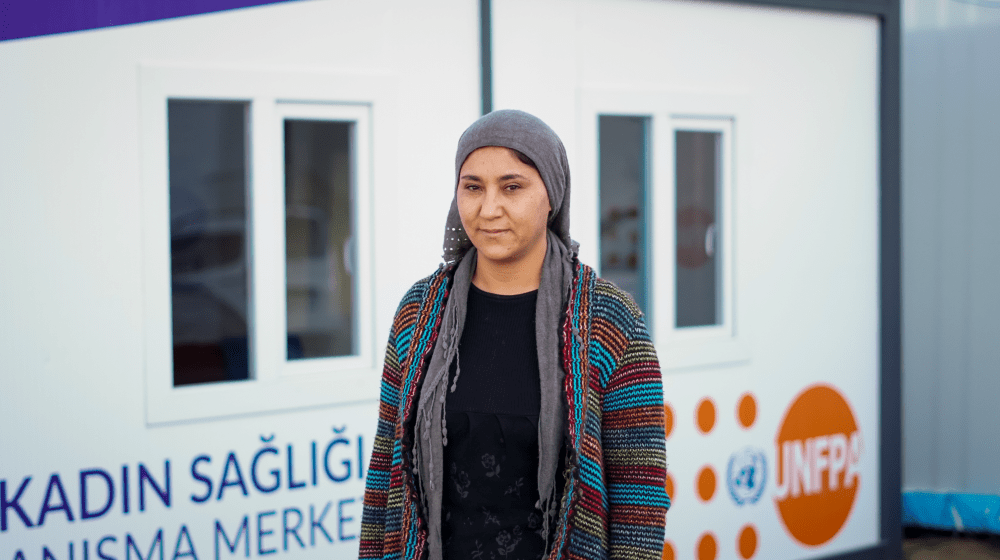After the devastating earthquakes hit Türkiye on 6 February 2023, around 9.1 million people were directly affected in the region. The Government of Norway generously provided financial support to contribute to UNFPA’s earthquake response. Some of this aid was used to support our Women and Girls Safe Spaces (WGSS) implemented by the KAMER Foundation in Malatya and Adıyaman provinces. The service units support women and girls who survived the earthquakes through providing sexual and reproductive health (SRH) services including family planning consultation and pregnancy follow-ups, gender-based violence (GBV) prevention and response services including psychosocial support, as well as providing dignity kits and maternity kits. Let’s meet some of them:
Filiz Ürkmez
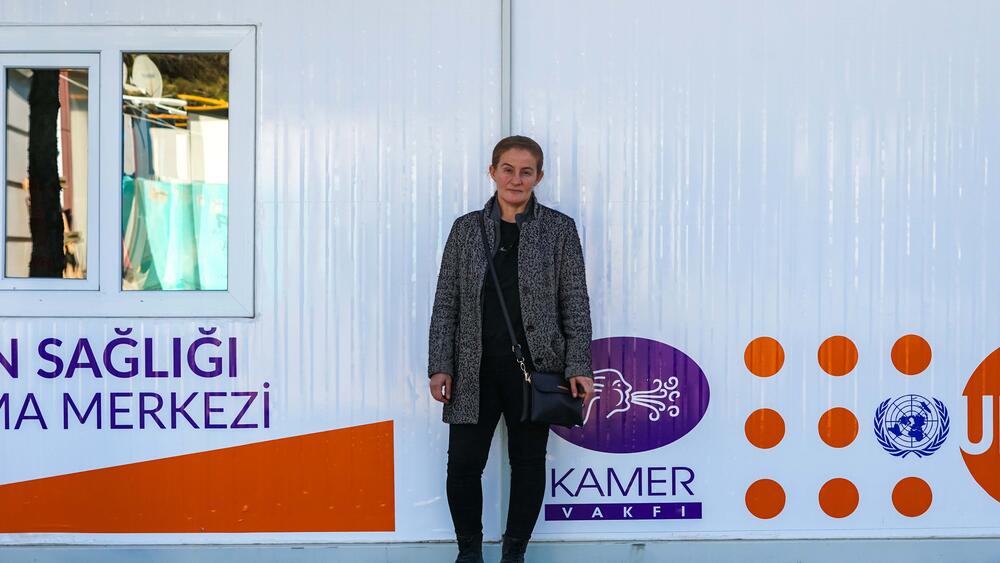
Filiz, a resilient earthquake survivor 43-year-old mother, faced life’s toughest moments with courage. When the first earthquake happened, she survived and ran to help others at the hospital where she experienced the 2nd earthquake. She couldn’t reach her children and faced real fear. She had to walk for a long time among damaged roads and rubbles to arrive at her damaged house where she still lives. Her children had to leave the city for safety so the earthquake not only damaged their house but also their lives.
We met Filiz at our WGSS in Doğanşehir. She talks to our field workers, gets health information, and learns about family planning. With the help of WGSS, Filiz could access family planning services. She speaks up for women in her community, saying “Women here cannot be very open about their emotions although they face several problems. They even have to make many sacrifices and put their health aside to prioritize the needs of their kids as healthcare services are disrupted severely”. She, thus, is thankful for the specialized support for women.
Zeynep
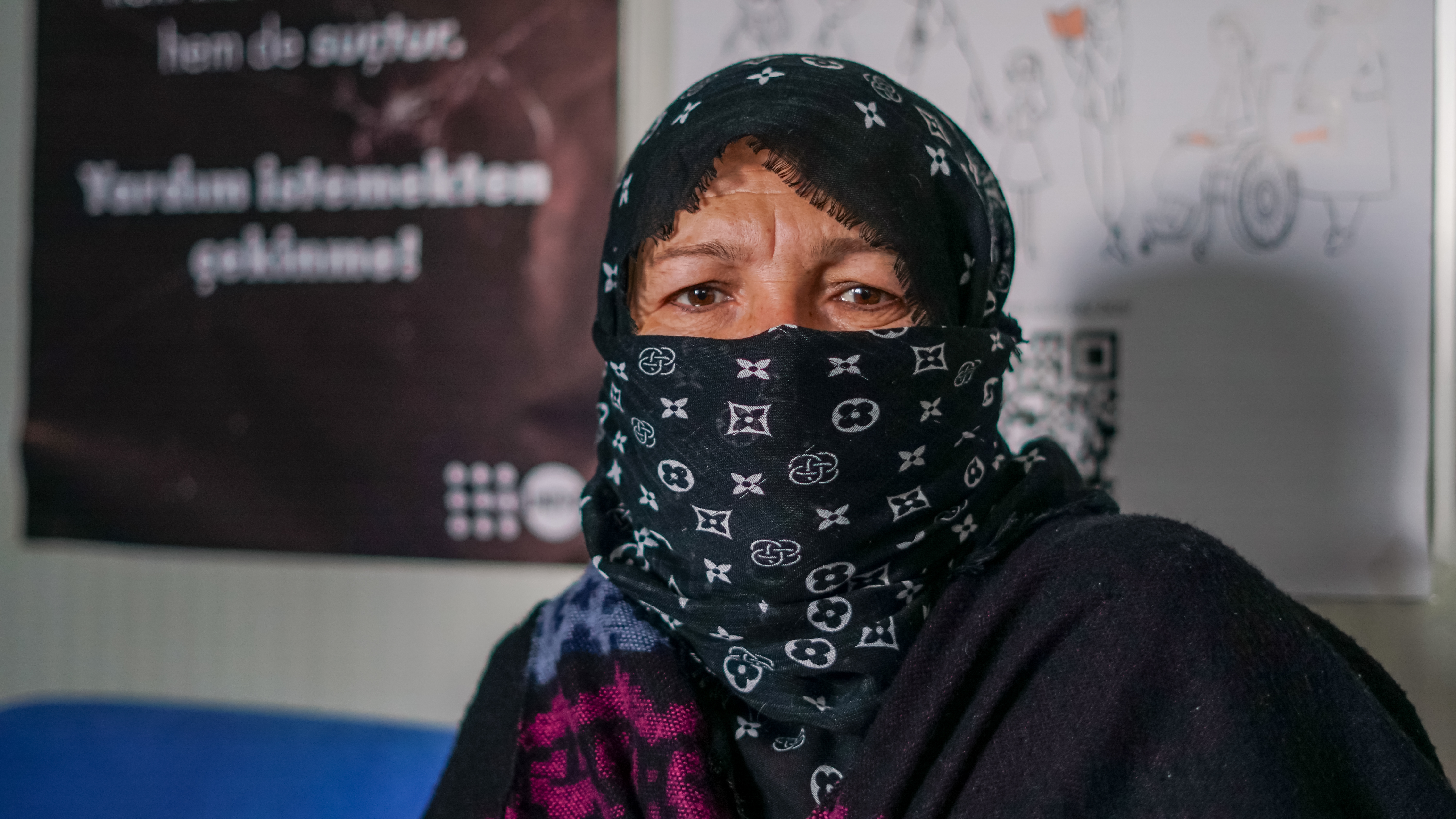
Zeynep's life, filled with hardships at 47 as a single mom in Malatya raising three kids, reveals a tough journey. "I was married off at a child age with a stranger. Abuse from my husband made my life unbearable," she says as she begins her story. After her husband left them, she had to deal with her son’s substance abuse and drug-fueled violence over her along with uterine cancer. The earthquake came on top of all these challenges and caused her to lose her house and all belongings. While she sought help everywhere, she found a lifeline in our Malatya WGSS.
Amidst dark moments, Nilüfer (Health Mediator) from the WGSS became her 'white angel', sharing her burden in every struggle. "She was there when I needed someone most, providing essential help during dire times" Zeynep recalls, her smile reflecting deep gratitude and adds "They were my ray of hope, helping my son with treatment, guiding me through tough times.” Struggling with health issues born from sorrow and her ordeals, she now yearns for economic independence while acknowledging the scarcity of opportunities. Yet, her only wish today is for her son's happiness and health as he is sober once again.
Nilüfer Kısak - Health Mediator
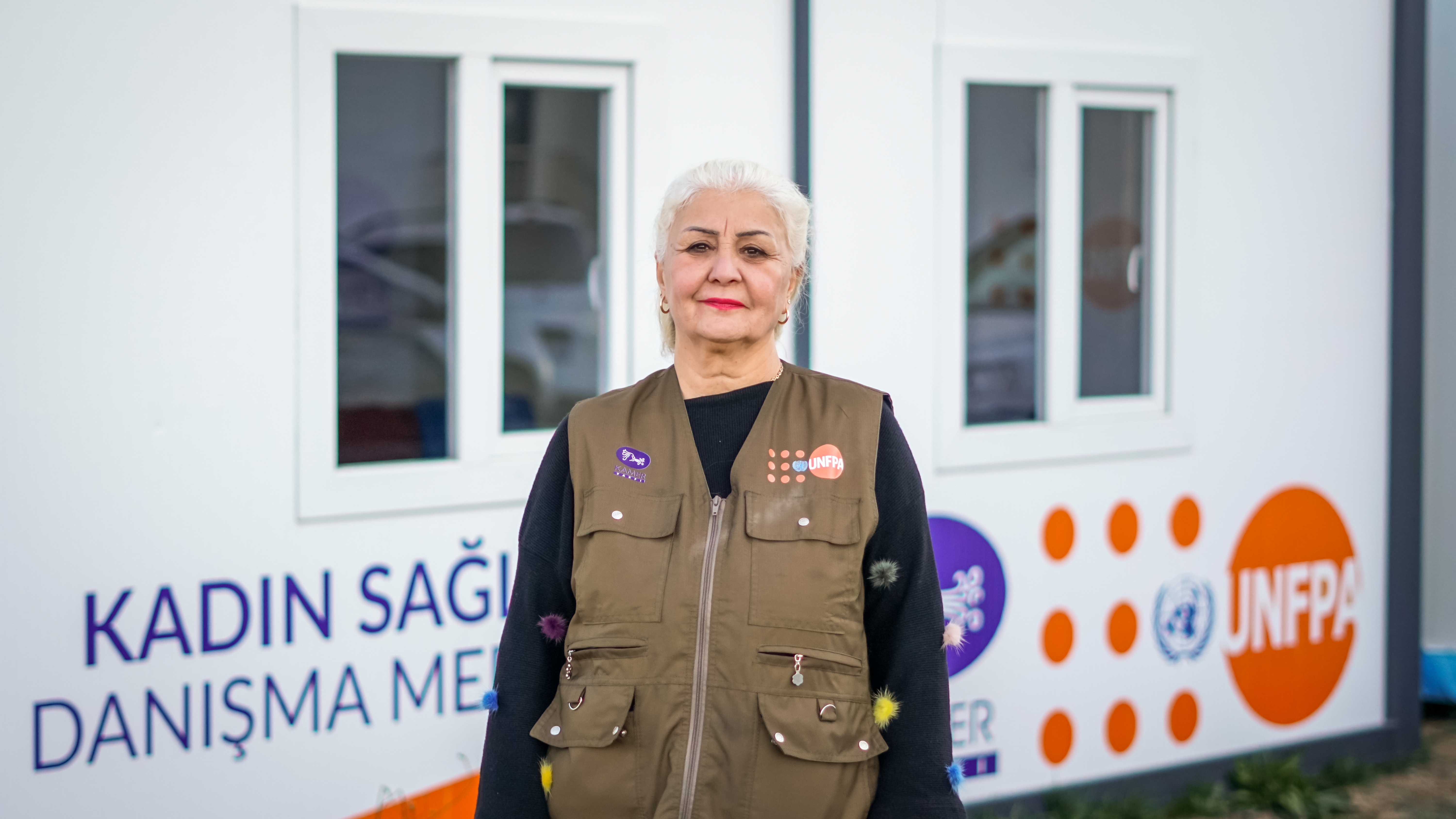
Nilüfer Kısak stands as an inspirational figure at the WGSS in Malatya, a beacon of hope for women and girls in the area. Her journey, starting as a volunteer in 2005 and evolving into a local representative, paused briefly in 2021 due to health challenges but reignited with renewed vigor after the earthquake to support women in need as an earthquake survivor rescued from the rubble.
Amidst the chaos of the earthquake, she shared, "We were grateful to be alive, but the collapse of our homes and the painful wait for trapped relatives were heartbreaking," and she is now healing by providing help for others as she recognizes the healing impact of support for both herself and other women, empowering herself while touching countless lives.
Nilüfer and her team tirelessly reach out to support pregnant women and survivors, emphasizing their commitment by stating, "We have never stopped; we are reaching every corner, every district and will continue doing that."
Kısmet Tosun
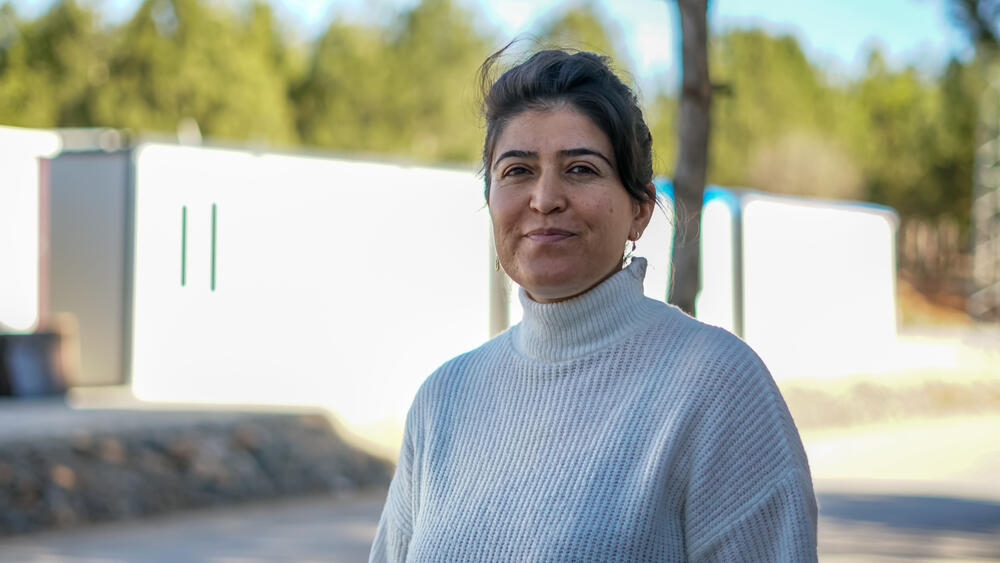
Kısmet survived the earthquake in Doğanşehir, Malatya with her two children. Their home was destroyed, and they lived in a tent for six months and had challenging times especially regarding basic healthcare and hygiene. She attended our sexual and reproductive health training at the Women and Girls Safe Space in Doğanşehir. With the information she received at training sessions, she not only cared for her family but also helped a pregnant friend in need.
Kısmet said, "The center taught us many things we didn't know about staying healthy. I want to help others with this knowledge." She also shared, "The support from the center gave us hope, even in tough times." Despite ongoing challenges and fears of more earthquakes and harsh winters in the area, Kısmet has hope for the future. The resilience she reflects has been an embodiment of strength, dedication and endurance and it inspires others to find courage amidst crisis.
Azize Diyab - Nurse
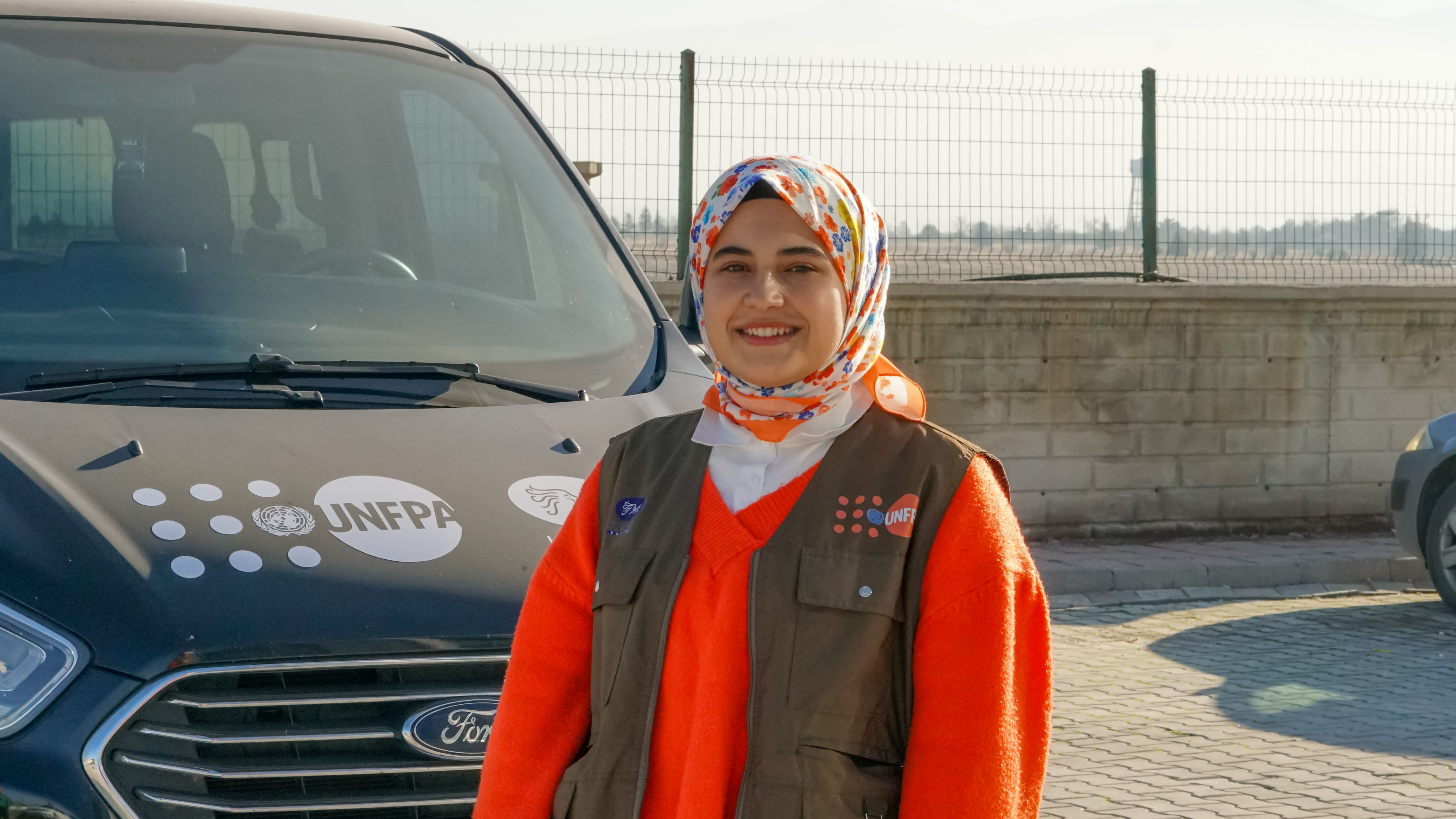
Azize Diyab’s remarkable journey from a Syrian refugee to a beacon of hope in Malatya epitomizes resilience and compassion. Fleeing the war in 2013, she pursued education, earning a nursing diploma from a university and Turkish citizenship. In the post-2023 earthquakes, she has redirected her path toward empowering women.
Surviving the earthquake's chaos, Azize recalls their escape, leaving her belongings behind. "Daily survival became a struggle," she recalls, highlighting the hardship. Integration was challenging, facing discrimination in the shared classrooms where they sheltered with Turkish locals, adding to their hardships. Yet, in her role at the Malatya WGSS, Azize conducts vital field visits and follow-ups, providing comprehensive services from reproductive health information to prenatal care, reaching every nook and corner, including containers, villages, and urban centers.
Ferize Cuma
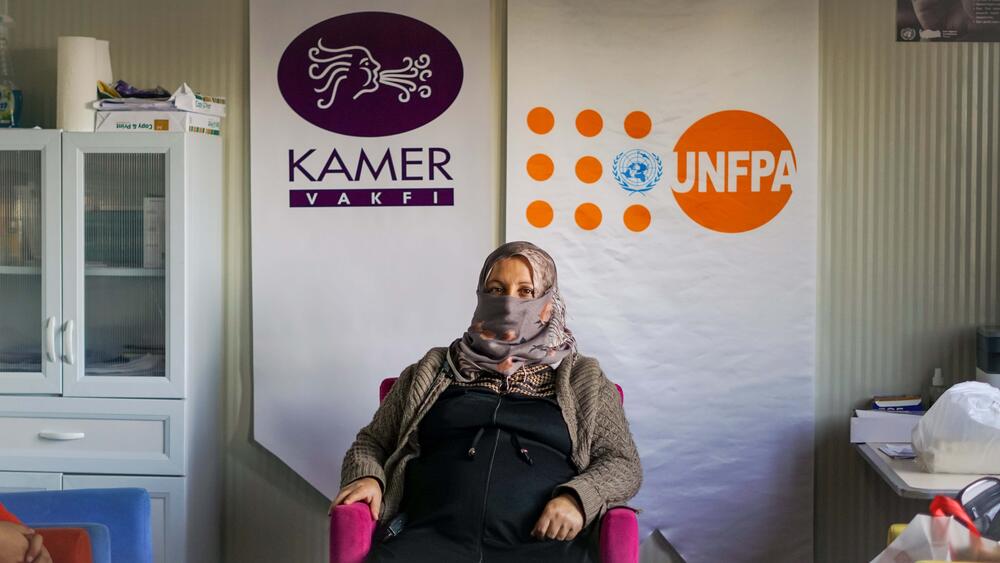
Ferize Cuma, a Syrian refugee living in Türkiye reflects resilience and endurance. After arriving in Türkiye in 2012 at 16 and staying in Adana refugee camp for 4 years, she finally moved to Malatya to live in an apartment where she faced the earthquakes and had to move again first to a tent then to a container.
Now, in her 8th month of pregnancy, Ferize finds support through our WGSS. She participated in a rural education program. "They teach us about nursing, prenatal care, childbirth, and breastfeeding," she mentions, highlighting the WGSS’s follow-up support regarding her pregnancy and the dignity and maternity kits received.
Dilvin Hammil
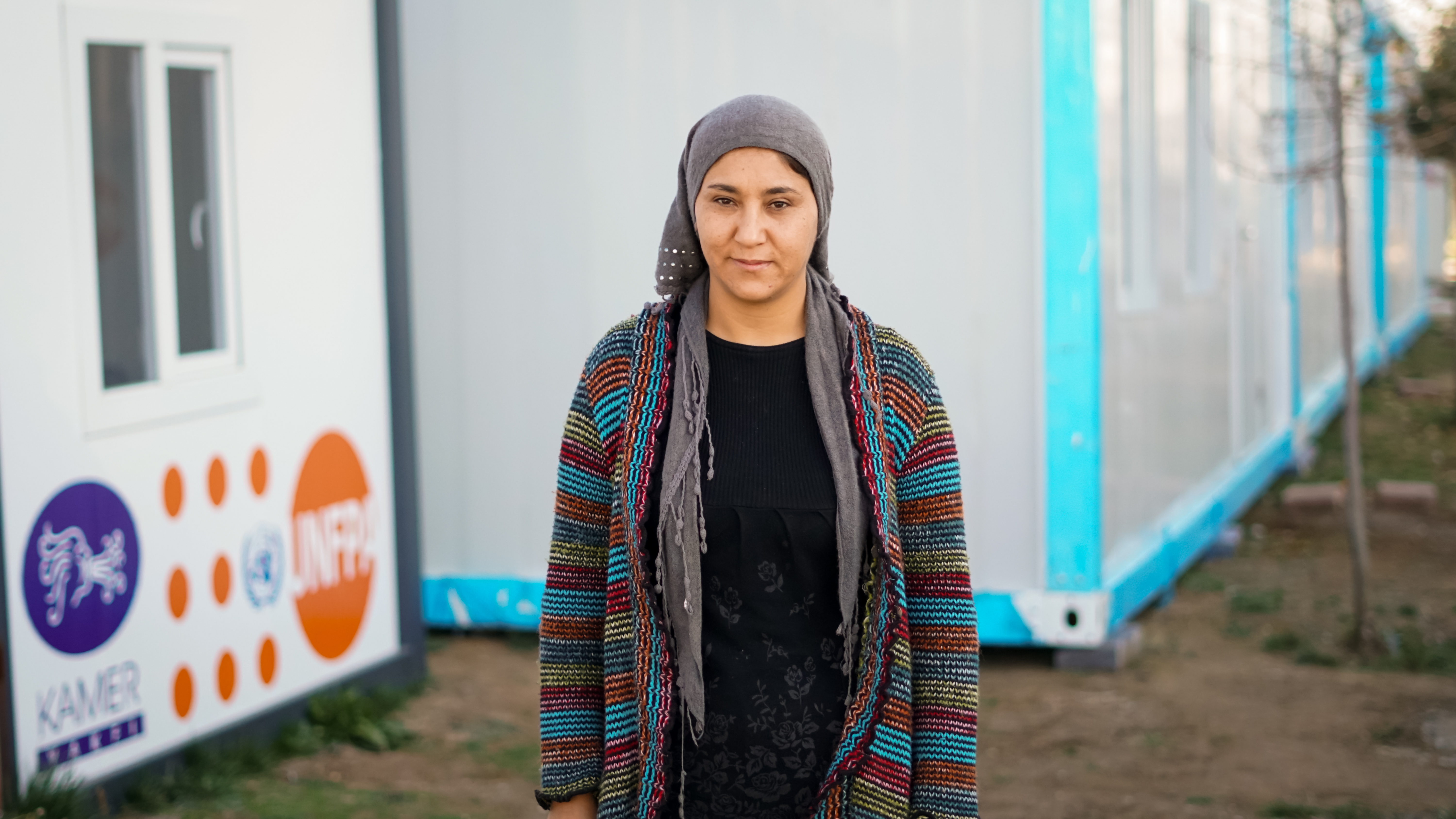
30-year-old Dilvin Hammil's journey to Türkiye in 2014 promised a fresh start but was revealed as a complex one. From Şanlıurfa to Istanbul and eventually settling in Malatya in 2017, her path was marked by more challenges, beginning with the turmoil of the destructive earthquakes. While ensuring her children's safety during the quake, her youngest son had an injury affecting his vision.
Beyond the devastating crisis, Dilvin faced abuse from her spouse's family adding to her struggles. Amidst these hardships, our Malatya WGSS became a beacon of support, offering family planning services, and dignity kits while guiding her children through psychological support and other resources.
Nesrin Acar - Nurse
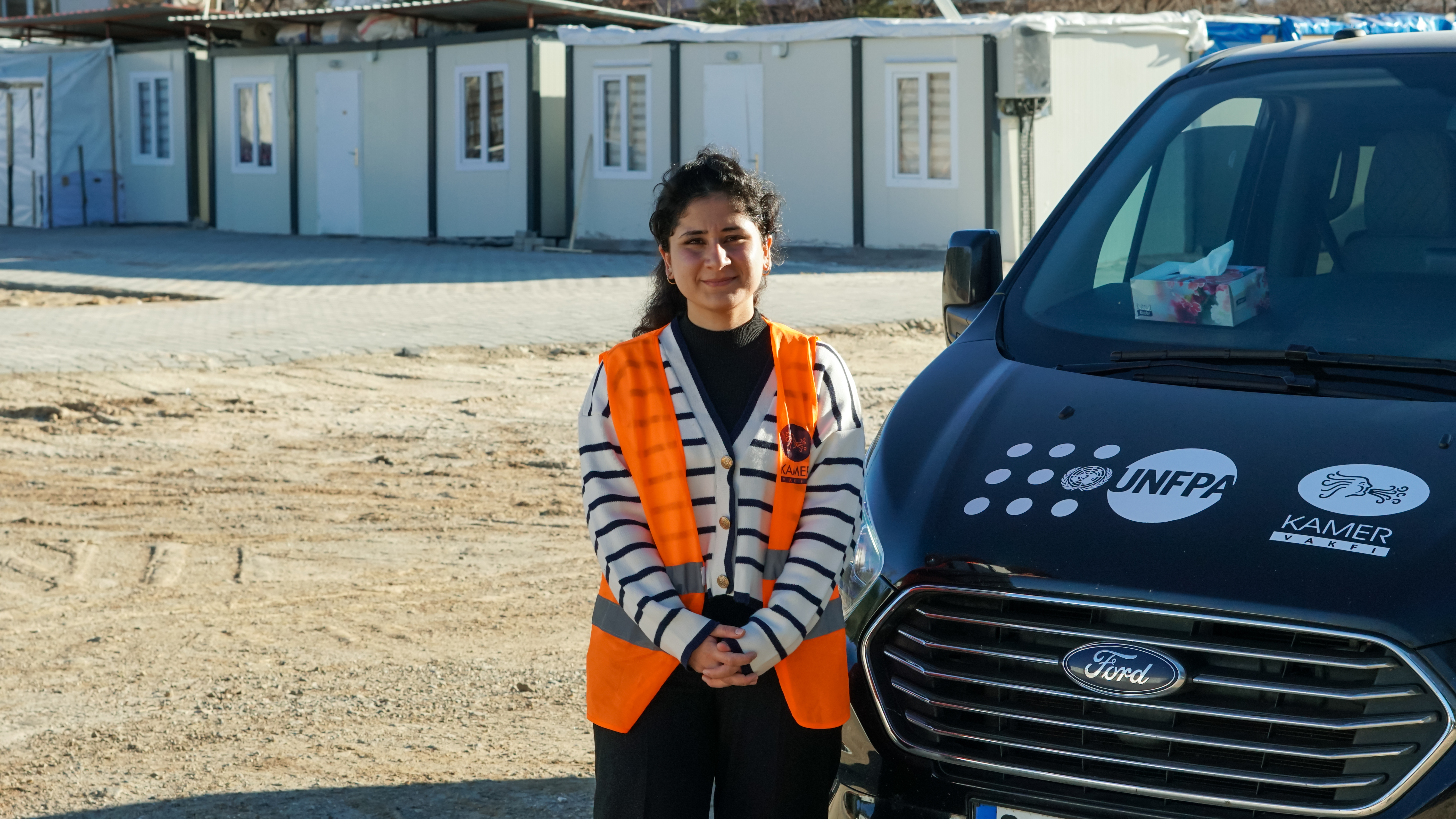
In the aftermath of a devastating earthquake, Nesrin Acar, a 24-year-old nurse from Şanlıurfa now working in Malatya WGSS, found herself caught in the chaos. The disaster had torn her family's home apart, leaving Nesrin in shock as she had to navigate her way.
After 11 months passed, newly-graduated from university, Nesrin came to Malatya for women's and girls’ aid. As she also struggles to survive in dire conditions, she goes door to door in Malatya and informs them about the services they provide. Thanks to her relentless dedication, women in the area are now more aware of health and protection as well as their rights and other support services.
All these stories showcase the meaning and importance of resilience, solidarity and healing together. With the dedication and tireless efforts of the humanitarian workers most of whom are also earthquake survivors, there is a big hope for a better tomorrow amid ongoing struggles and continuing needs.
UNFPA has been on the ground since day one with the support of the partners. With the generous support of the Government of Norway and in partnership with the KAMER Foundation, we will continue to provide SRH and GBV prevention and response services in Malatya and Adıyaman provinces through our WGSSs.

